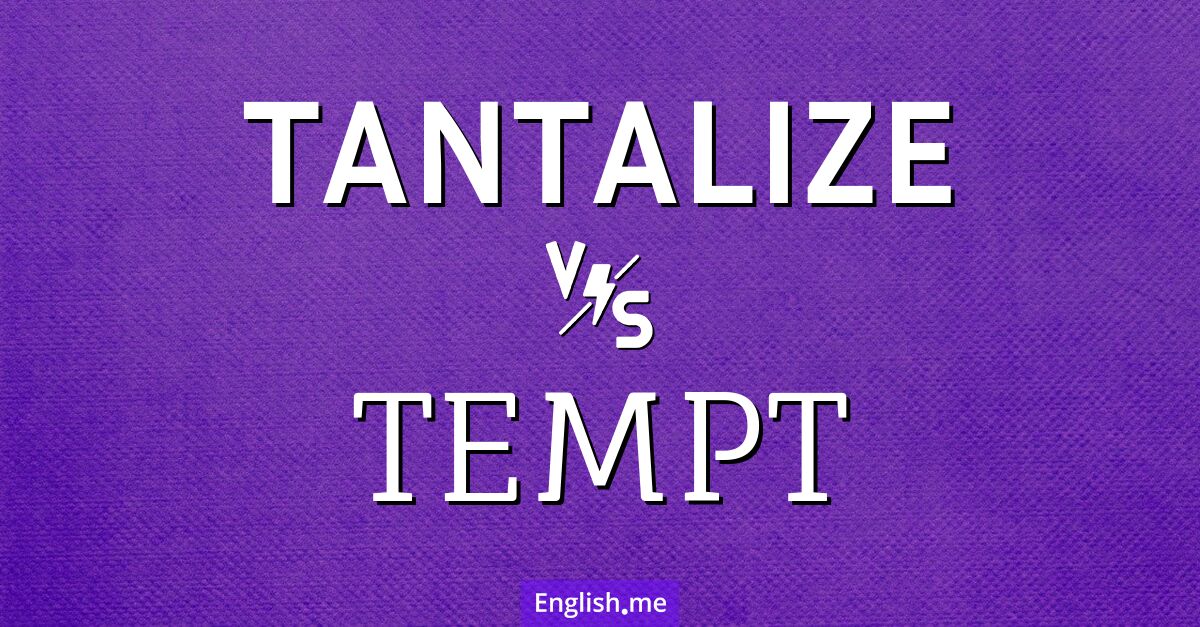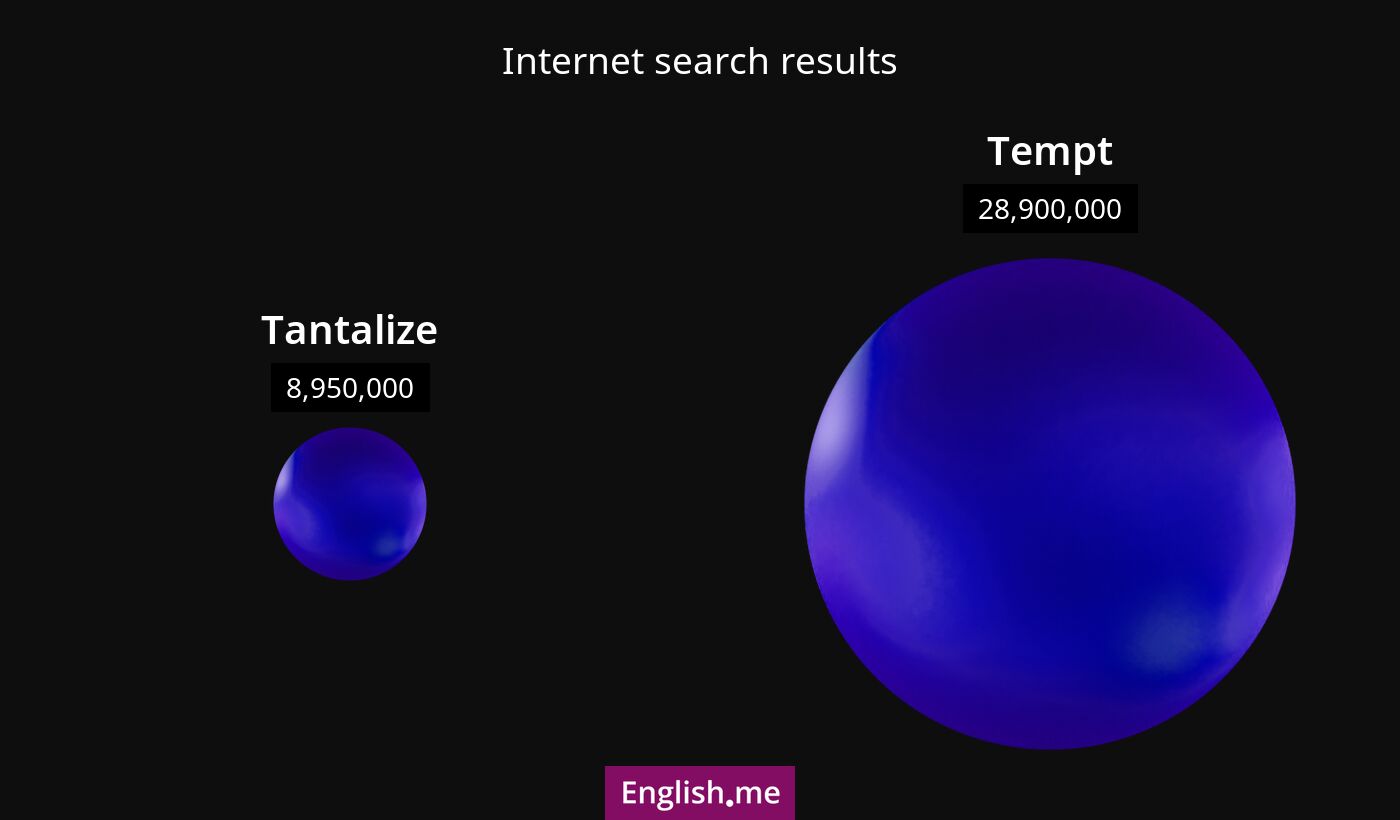Enticing parallels: "tantalize" vs. "tempt"
Reviewed and edited by  Lloyd Cooper 19/11/2024, 11:55
Lloyd Cooper 19/11/2024, 11:55
English.me team member

 What is similar?
What is similar?
Both "tantalize" and "tempt" refer to actions that entice or allure someone or something, often causing desire or curiosity.
 What is different?
What is different?
The word "tantalize" implies prolonged teasing or provoking with something desirable but unattainable, often causing frustration. "Tempt" suggests causing a desire or an urge to do something, especially something considered wrong or unwise, without the necessity of prolonging it or making it unattainable.
 Which one is more common?
Which one is more common?

 Examples of usage
Examples of usage
Tantalize- The aroma from the bakery tantalized us as we walked by.
- He tantalized his friend with tales of his luxurious travels.
- The promise of a distant future prize tantalized the contestants.
- The smell of freshly baked cookies tempted her to break her diet.
- The shiny new phone tempted him to spend more than he had budgeted.
- She was tempted to skip her workout and watch TV instead.

 English
English español
español française
française italiano
italiano deutsche
deutsche 日本語
日本語 polski
polski česky
česky svenska
svenska Türkçe
Türkçe Nederlands
Nederlands